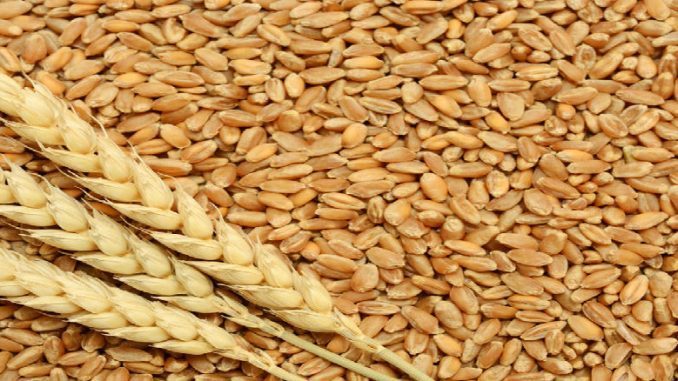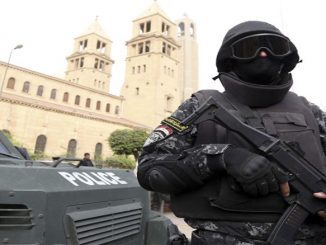
Russia’s invasion of Ukraine may cost Egypt about 955 million dollars in wheat import bills as wheat prices hit record highs.
Egypt imports roughly 70 per cent of its wheat from Russia and Ukraine and fears are growing in Cairo that a protracted conflict will severely disrupt their supply.
In this context, price of unsubsidized bread up by 50 percent over the past week, amid effects of war and soaring insurance and freight costs
Russia is the top exporter of wheat worldwide whilst Egypt is the world’s largest importer of wheat.
The cost of wheat has raised 37 per cent this year and maize 27 per cent as the Russia-Ukraine conflict exacerbates a ten-year high in global food prices brought about by the coronavirus pandemic.
Currently, 70 per cent of Egypt’s population claim five loaves of subsidized bread a day but the government has warned that with supply chains disrupted they may cut access to subsidies for 45 million people.
The slashing of bread subsidies has been a major source of frustration from the Egyptian people towards the government, sparking widespread protests in 2017.
Roughly a third of Egyptians live below the poverty line and live on less than $2 a day. Unemployment is widespread and those that do have jobs complain that salaries have not been increased in line with inflation.
Just yesterday Egypt’s petrol minister Tarek El-Molla said that the rise in oil prices because of the Russian invasion is already negatively affecting Egypt as oil and gas have surged to their highest level since 2008.
Russia is the world’s third largest oil and liquid fuels producer and a major petroleum exporter.
Egypt has already raised fuel prices several times as part of an austerity program it has rolled out to receive an IMF loan.
After 2019 protests calling for President Abdel Fattah Al-Sisi to stand down the government announced that it had lowered fuel prices but has since raised them again.
Al-Sisi has been ridiculed for calling on Egyptians to endure economic hardship in exchange for future prosperity when he and his ruling inner circle live in opulent palaces and have been accused widely of corruption.
As well as wheat and petrol, Egyptians fear that the conflict will affect their vital tourism industry as Russians and Ukrainians make up roughly 40 per cent of Egypt’s total tourists.
Early this month there was already a 50 per cent decline in Russian and Ukrainian tourists in the Red Sea holiday resorts.
Unsubsidized bread
Price of unsubsidized bread up by 50 percent over the past week, amid effects of war and soaring insurance and freight costs
Egypt, the world’s top wheat importer, is now witnessing a dramatic rise in the price of unsubsidized bread, following Russia’s invasion of Ukraine, one of the world’s biggest wheat producers.
The country is one of several Middle Eastern countries, including Iraq, Lebanon, Tunisia, Algeria and Turkey, that imports both Ukrainian and Russian wheat, and who are all bracing themselves for continuing price increases.
Khaled Sabri, a member of the bakeries division at Egypt’s chamber of commerce, told Bloomberg that a pack of five flat-bread loaves can now sell for about 7.5 Egyptian pounds ($0.48) in the greater Cairo area, up from 5 pounds a week ago.
Between 2020 and 2021, Egypt imported most of its wheat – 12.5 million tons – from Russia and Ukraine.
The price of bread is political in Egypt, and at least 70 percent of the country’s 102 million population rely on subsidized bread.
The current price of subsidized bread is five Egyptian pounds ($0.32), with Prime Minister Mostafa Madbouly saying last month that an increase in the price of a loaf of subsidized bread “will certainly happen”.
Nearly five years ago, angry demonstrations erupted across Egypt after the government cut bread subsidies amid an economic crisis.
The last price change of a loaf of bread was 34 years ago. In 1988, “the loaf price rose to five piasters (about $0.0032) when the cost of the loaf for the state was 17 piasters (0.0108 dollars) in 1988,” Madbouly said.
Following the Russian invasion of Ukraine, Nader Saad, the Egyptian cabinet’s spokesperson, raised the alarm that the country currently has nine months’ worth of wheat in silos, including five months of strategic reserves and four months of domestic production to cover the needs of the country’s bread for millions of Egyptians.
Saad added that Egypt would not be able to buy wheat at the same price Russia offers.
“There are 14 countries other than Russia and Ukraine approved by the Ministry of Supply as sources for the supply of wheat, including countries located in regions outside Europe such as Australia, the United States, Canada and Paraguay,” Saad said.
The United Nations’ World Food Program warned on Friday that disruptions in production and exports as a result of the war in Ukraine could lead to food insecurity globally.
The body noted that with Russia and Ukraine providing some 29 percent of the global wheat trade, serious disruptions in production and exports could send food prices – already at 10-year highs – even higher.
The price of wheat continued to rise on Monday, with soaring insurance and freight costs adding to the effects of the war.
Bakery owners are already feeling the pressure, Attia Hammad, head of the chamber’s bakeries division, told Bloomberg.
“[They are] getting a ton of flour for 12,300 pounds versus 9,000 a week ago, on top of the high price they pay for everything from electricity to fuel,” he said.
“I’m not saying the government should leave bakeries alone – no, they should inspect and control them, but input prices are already hitting them.”



